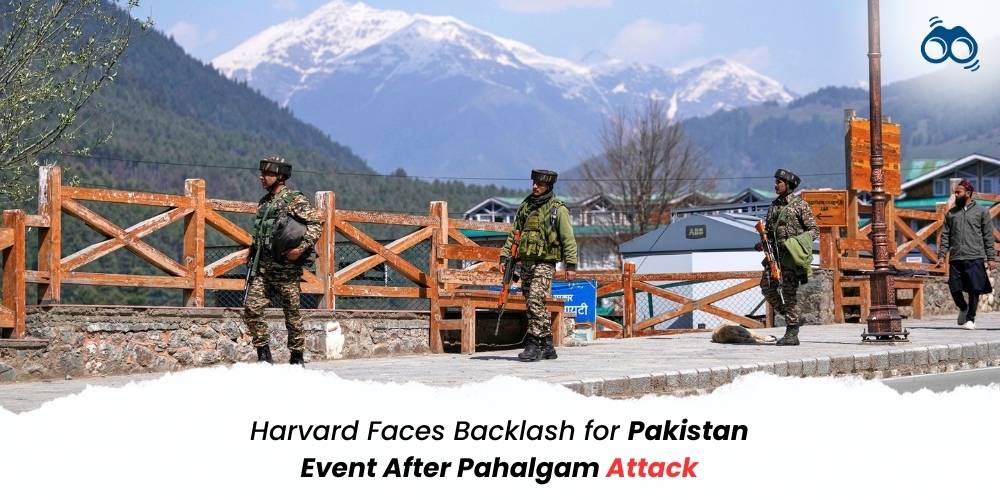Indian Students Protest Harvard’s Engagement with Pakistan Officials Post-Attack
Global Politics in Academic Spaces: Harvard Event Fuels Controversy
The growing geopolitical tensions between India and Pakistan have increasingly impacted academic spaces, as highlighted by the recent backlash against an event held at Harvard University's South Asia Institute. The event, funded by Lakshmi Mittal and his family, faced criticism from Indian students due to its timing and the presence of prominent Pakistani officials, including Finance Minister Muhammad Aurangzeb and Pakistan’s Ambassador to the US, Rizwan Saeed Sheikh. Occurring just days after the Pahalgam terrorist attack in Jammu and Kashmir, which claimed 26 lives, the conference provoked strong emotional and political responses on campus.
The attack, initially attributed to the Resistance Front, a group allegedly linked to Lashkar-e-Taiba, intensified the criticism. Indian students accused Harvard of insensitivity for hosting Pakistani representatives soon after the tragedy, asserting that it ignored the sentiments of the victims. In letters to Harvard’s leadership and US Secretary of State Marco Rubio, two Indian students, Surabhi Tomar and Abhishek Chaudhuri, argued that engaging with Pakistani officials risked complicity in terrorism. They called on Harvard and the US government to condemn the attack and reconsider their interactions with a state they accused of supporting faith-based violence.
Following the controversy, Harvard removed details of the event from its website and clarified that the conference was organised by Pakistani students, with the university solely providing logistical support. However, criticism escalated further when it was revealed that Hitesh Hathi, the Executive Director of the South Asia Institute, participated in a panel alongside Pakistani-American historian Ayesha Jalal. The session, titled “The Enlightened Muslim: Examining the intersection of religion, modernity, and state formation in Pakistan,” was among several event listings that Harvard later removed, reflecting efforts to distance itself from the situation.
In an official statement, Harvard explained that the topics and speakers for the conference were independently chosen by students and their faculty adviser, without involvement from the institute’s benefactors. The university also clarified that a similar approach was followed for its India Conference held earlier in February. Additionally, Harvard extended condolences to the victims of the Pahalgam attack, expressing solidarity with those affected in India. This incident illustrates the heightened sensitivity of academic spaces to geopolitical conflicts and how institutional actions can evoke broader emotional and political reactions.
Editor’s Note:
The controversy surrounding the Harvard event underscores the delicate balance between academic freedom and ethical responsibility. While universities should remain spaces for open dialogue and diverse perspectives, hosting officials from politically sensitive nations—especially in the wake of tragic events, requires careful consideration. The participation of Pakistani representatives so soon after the Pahalgam attack raised concerns among Indian students, highlighting the broader implications of such decisions. Academic institutions must weigh the impact of their choices on affected communities while upholding principles of free expression. Striking this balance is challenging but essential.
As per Skoobuzz, as global tensions grow, universities like Harvard are reminded that their platforms carry influence and must reflect a commitment to both intellectual openness and social responsibility.














0 Comments (Please Login To Continue)